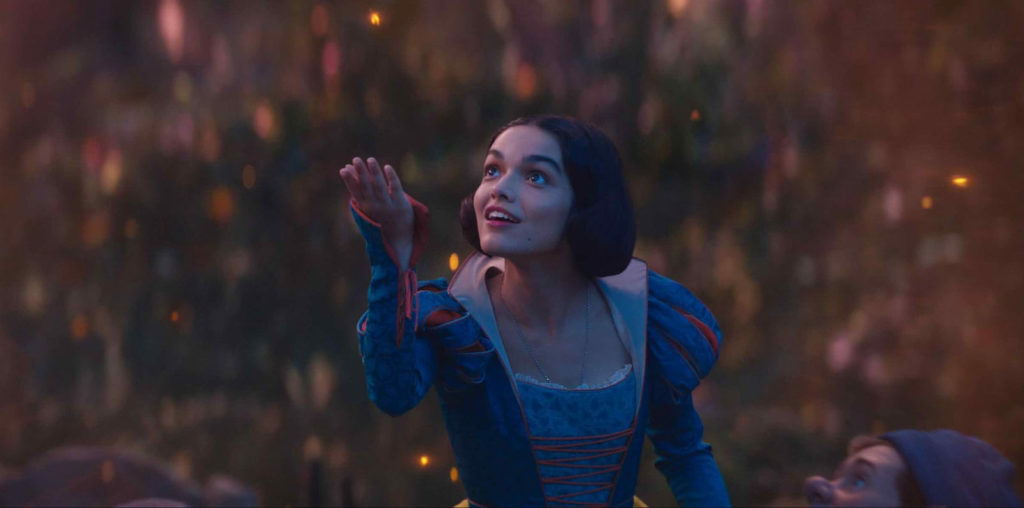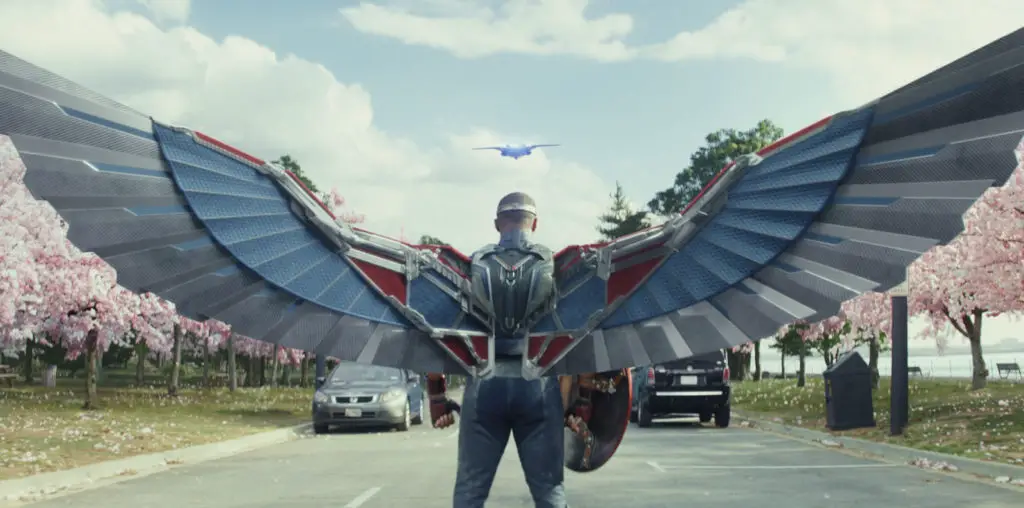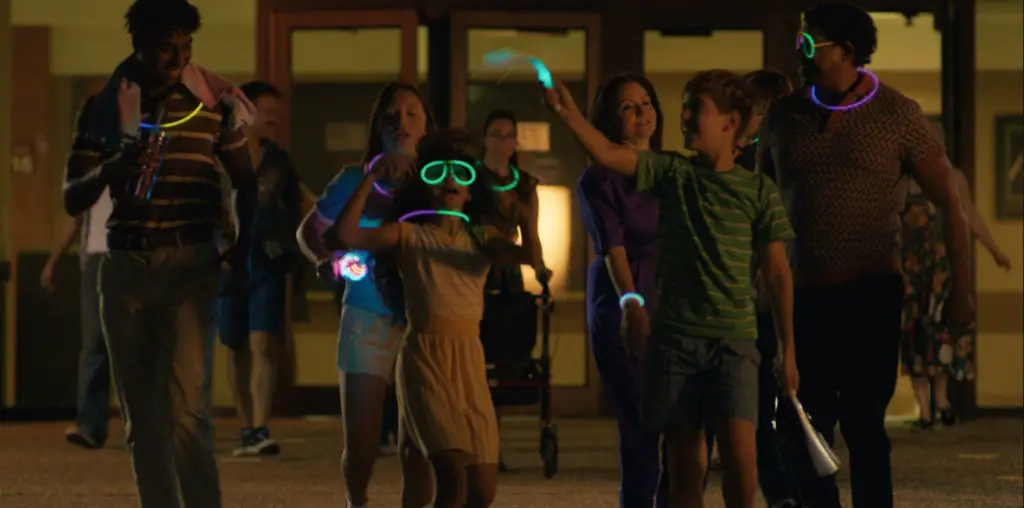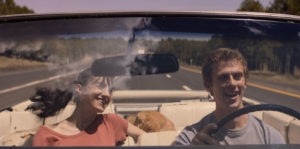
Road movies have been a staple of filmmaking for decades—the journey is the glue; the twists and turns en route are the draw. At the center, What We Find in the Road is just-turned-18-year-old TJ (Finn Haney shows a remarkable talent for emotional expression, ranging from joie to vivre in the Grand Canyon to understandable outrage in Vallejo, California). Coming in second place (with no audible lines but a repetitive radiator gag, the plot-driving problem is “Blue Biscuit,” a 1968 Dodge Polara (full disclosure, I used to drive one!) that suddenly comes into TJ’s possession. But there’s a catch, of course. The sudden car owner must drive this wily convertible from Cape Cod to the West Coast for, apparently, a long overdue reunion with Dad (aka The Hammer from his rock and roll days—Ross Patridge’s brief portrayal at the unexpected unveiling [no spoilers here] is a model of understatement).
Nursing the dilapidated four-wheeler back to road-worthy life are mechanics Billy (sagely done up by Paul Guilfoyle) and sidekick Jimmy (Billy Amaral). The highlight of their combined ministrations is a much missing father-to-son chat (over a brewski, of course), between the reluctant trailblazer TJ, and the wiser-than-he-looks healer of cars, Billy: “Grab it [the opportunity], go for it”. Wise words for many unexpected situations. Hilarious is the sign on their shop: “Brake Problem, Stop Here.”
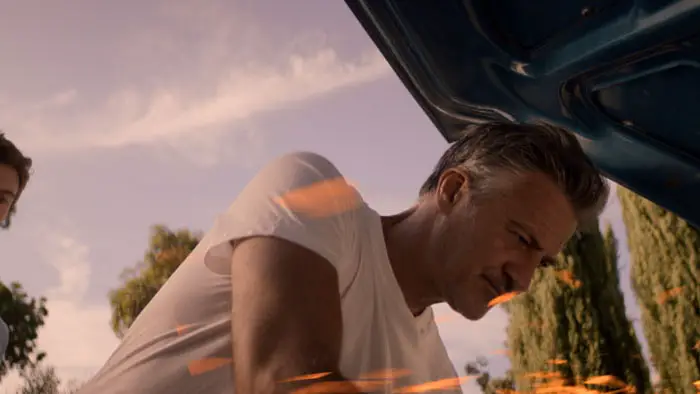
“The sudden car owner must drive this convertible from Cape Cod to the West Coast …”
Unexpectedly coming along for the country-wide trek is TJ’s best bud, Jake (William Chris Sumpter proves that he is deserving of a leading role in the near future). The tension about being pulled over twice by cops is palpable, yet his sudden departure back home doesn’t quite ring true.
However, if he didn’t leave, then the next failed-engine driver, Maeve (the Irish are well-served thanks to Katherine Laheen’s take on her equally disappointed character—due to the ex, not the dad—still he serenaded her as a child with guitar too—can’t get enough music, it seems), kept the narrative from sputtering to a halt.
And so, the journey continues, spending overnights in state parks (hotels being too much for their budgets: the cost of gas for a known guzzler rules), a briefly tender hand-holding moment (no sex at all on the trip, but perhaps in the sequel…) then arrival in the Golden State.
Inevitably, pointedly or the final scene would lack punch, the sudden friends have to part company at a convenient railway station. She went south to LA, he north to San Francisco, and long-missing Dad. Maeve’s parting gifts are telling, and she gives him new boots and jeans so TJ will look his best at the reunion. She also gives him a copy of Mark Twain’s journey across the country, Roughing It. This marvelously underscores their pilgrimage back to their familial reacquaintances.
Craig Richey’s original score and the many lyric-appropriate songs, such as “Back in the Day,” “A Place in the Sun,” “All I Want to Be,” “Rock Bottom,” and, of course, “Road Trip, ” add much to the production. For anyone who has ever learned the truth of the old adage, “You can’t choose your relatives,” a viewing is recommended.
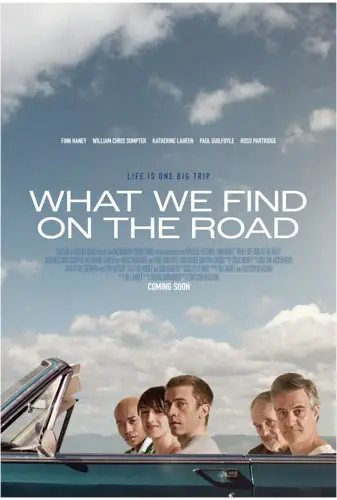
"…The writing is of a high-enough quality to keep any viewer engaged"
